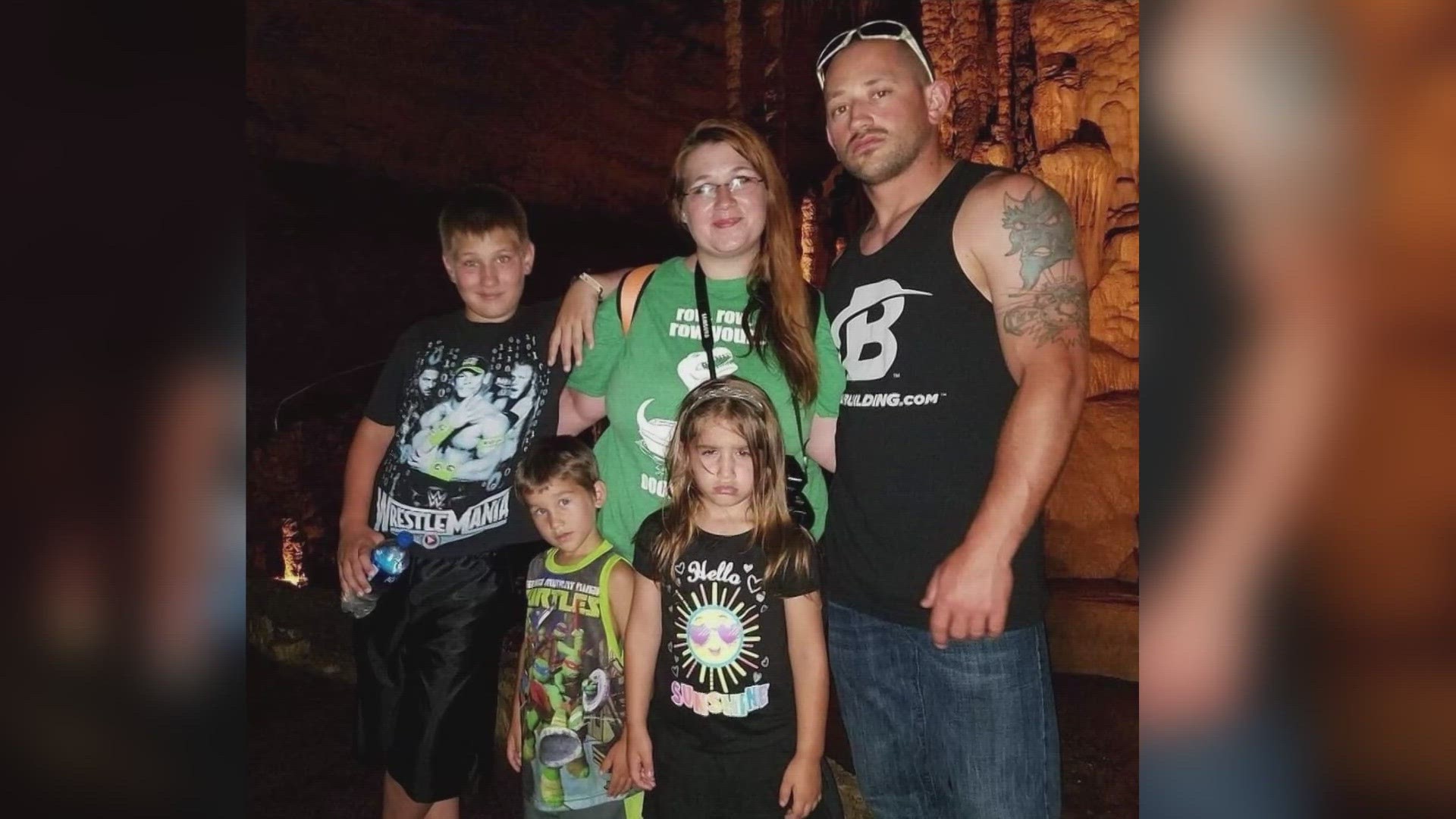ODESSA, Texas — Thirty-eight-year-old Daniel Allen was involved in a life-threatening motorcycle crash in Odessa on Jan. 24.
After passing away on Feb. 1, he will be donating his organs.
At Medical Center Hospital, an honor walk was done for Allen to honor he and his family’s decision to register for organ donation.
Daniel's wife Amber said this is something they had talked about, and it fits the kind of person her husband was.
"Daniel just, he touched so many people’s lives," Amber Allen said. "He was one of those that you could call him, day or night, and he’d be right there trying to help you with whatever he could help you [with], so this is just him helping more people. There [are] going to be pieces of him out there, so he’s going to be saving people’s lives and touching other people like he’s always touched everybody, because he’s always had such a good heart.”
Amber Allen added that they will take comfort in knowing he can give people a second chance at life. The Allen family also emphasized the importance of organ donation and the need for it.
That need is large, with over 10,000 Texans currently on the wait list for a lifesaving transplant, and over 103,000 in the United States.
With that reality, understanding how donating organs works is incredibly important.
There are several steps that go into saving lives through donating organs. Less than 1% of people who pass are even eligible to become organ donors due to health reasons, making organ donation rare.
There is something special about organ donation.
“A time where grief and hope intersect," Emma Lunceford, marketing communications associate at Southwest Transplant Alliance, said. "You have a family on the most tragic day of their life has been incredibly selfless and said yes to donation and has given hope to someone else who’s going to be given a second chance, so it’s a beautiful thing.”
Southwest Transplant Alliance is an organization that works around the State of Texas, including Midland-Odessa.
“A hospital will call us if someone meets those clinical triggers to possibly be considered a candidate for donation, and so we will come in and talk to those families and approach them and just ask ‘what do you know about donation?’, and just go from there," Lunceford said.
After those conversations, the process works toward completing a donation.
“If the family gives consent and that person becomes a registered donor, then we will proceed from there and do our best to make sure we place those organs…that person and their family has selflessly given to a recipient and give that recipient a second chance at life," Lunceford said.
Finding that recipient requires certain health measures.
"Matching occurs when you basically make sure – there [are] a lot of different factors that go into it – but it’s blood type, antibodies, things like that, because you want to make sure that the organ being matched, or organs, is as close as possible because you want to lessen the chance at rejection," Lunceford said.
Organ donation is a special process that also includes family.
“If that time comes and your family does have to make that decision, it is really, really important for them to know what your wishes are," Lunceford said. "There are families who have felt a great since of peace knowing that that is what their loved one wanted and they are honoring their loved one's wishes.”
Lunceford mentioned that a common myth is doctor’s won’t save patients if they are an organ donor, which she said is simply not true.
To learn more about becoming an organ donor and to register, click here.
Going to the Department of Motor Vehicles and registering as an organ donor on a driver's license is also an option.

